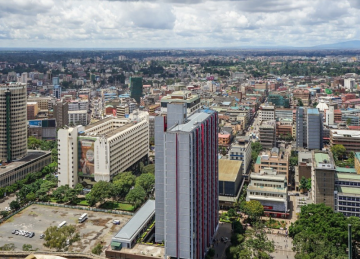
As a fast-growing city with more than 4 million people, Nairobi, Kenya, is home to one of the largest cohorts of young people in Africa, which has created a demand for affordable housing and urban infrastructure. While addressing infrastructure gaps, the Kenyan government has recognized the need for an enabling policy and legal framework to facilitate additional climate finance - hence to ensure that new infrastructure contributes to meeting the country’s climate goals and the Green Economy agenda.
Through the enactment of the Finance Act 2019 and issuance of the Green Bond Guidelines by the Capital Markets Authority, the government provided the enabling conditions for the successful issuance of the first sustainable infrastructure funding system that is based on an innovative financing instrument - Green Bonds (GB). The law exempts GBs from withholding tax as part of the incentive to encourage more investment in the green bond market. Using GBs as its financial instrument, developer Acorn Holdings is establishing much needed affordable green housing. Consequently, Nairobi has become one of the few African cities to successfully draw capital for sustainable infrastructure projects.
Guiding principle #8 Fiscal Sustainability and Innovative Financing, from the International Good Practice Principles for Sustainable Infrastructure.



